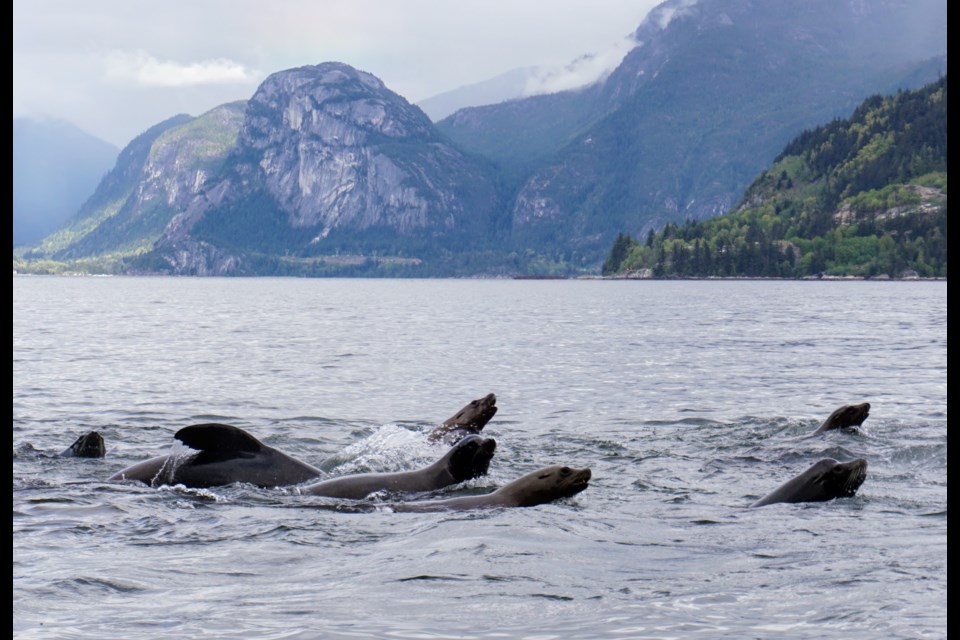The local herring spawn surveying is nearing its wrap-up, but once again, the program is learning more and more about herring behaviour each year.
The Squamish Chief took a tour on Friday, April 26, of some of the local spawning areas with Matthew Van Oostdam, the Search for Slhawt’/Herring project co-ordinator with the Átl’ka7tsem/Howe Sound Marine Stewardship Initiative (MSI).
The project, with further help from partners such as Skwxwú7mesh Úxwumixw (Squamish Nation), Squamish Streamkeepers and others, conducts herring spawn surveys from roughly January to May each year.
In the last few years, the project has gained momentum, and Van Oostdam says they continue to establish what he called "baseline" data about where herring are spawning. He said he was careful not to compare data between years quite yet, as he and the volunteers have all gotten more knowledgeable about how to find herring spawn
Van Oostdam estimated there have been about 30 committed volunteers recently.
“Our success has a lot to do with those people,” he said.
This year’s survey saw the first spawn near the Squamish Terminals, and Oceanfront Squamish in mid-February, and then more eggs popped up elsewhere on the south shores of Squamish, such as Cattermole Slough, Mamquam Blind Channel and the Squamish Estuary.
Another recent spawning event occurred at Foulger Creek, on the west side of Howe Sound, just a couple of kilometres south of the Woodfibre LNG site.
At Foulger Creek, cedar boughs, which garner herring eggs, were submerged near the shoreline, and marked by buoys. On April 26, a small patch of live eggs remained after lifting the submerged cedar. Elsewhere at the creek, there were many signs of hatched and also eggs that didn’t make it. Nearby, at least 20 sea lions were baiting a school of anchovies.
A little north of Foulger Creek, more documented herring spawning occurred just recently.
Similar to last year, there will be a report released from MSI about the 2024 survey year. Van Oostdam says they are also planning a community event around the report’s release to talk about what they learned.
For more information on the project, including information from previous years, visit .
Check out on the project.



